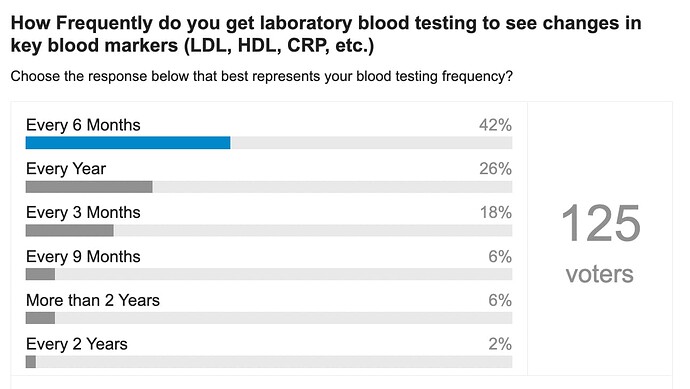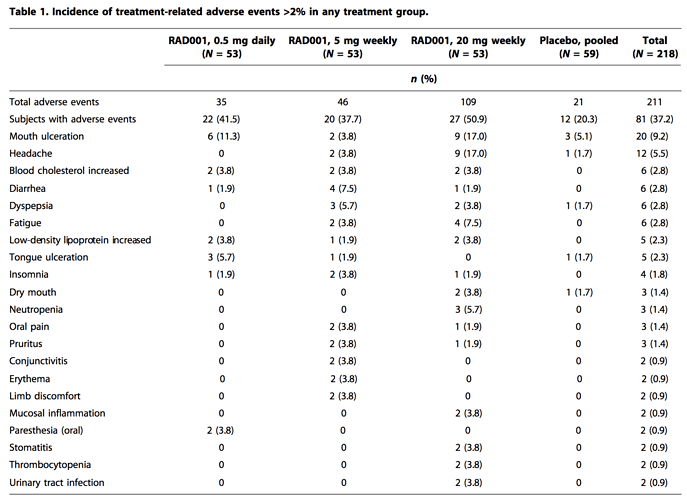Also want to add that the wording “blood glucose worsening” on the Questionnaire is confusing because answers do not imply that FG readings are within normal range. It could very well be that FG was already elevated (and controlled pharmacologically) and did not become worse (from being already bad). The straightforward questions should be: 1. is your FG within normal range without Metformin, Acarbose, etc. 2. Is your FG within normal range with Metformin, Acarbose, etc. Curious to know how many people would reply “yes” to that direct question.
Dexcom… since I had it (two years) is seldom outside 20% variation. Verified here with pinprick. Not only my baseline is higher (in the diabetic range), but some carbohydrates I tolerated previously, now elevate my glycemia to a high level and for a longer time. Exercise (zone 3 and above) normally drops my glucose level to the point that the dexcom alarms, it now barely dents the trace. Similarly, food that dropped my glucose, no longer do to a noticeable degree …. I will see how it goes in the next few weeks. On the brighter side, I am no longer foggy after taking rapamycin.
Thanks, I’ll read both articles.
Using this poll as evidence to suggest that rapamycin doesn’t negatively affect blood glucose levels is misinformative. We can’t assume every single respondent measured their blood glucose and accurately responded whether their glucose levels worsened on the poll– so the 4% who did mark that down doesn’t really mean anything in the wider picture of the poll if that makes sense
It might be in transplant patients that take rapamycin daily. For pulsed, weekly dosing I think its quite uncommon.
Well, most people do seem to do regular blood work , but I’ll agree that it may not be very precise given some people do blood testing less frequently as shown here:
But in the clinical study done by Jane Mannick / ResTorBio they didn’t report significant issues with blood glucose disregulation in patients (Rad001 is Everolimus, a rapalog, and very equivalent to rapamycin).
Mannick 2014 paper:
https://sci-hub.se/10.1126/scitranslmed.3009892
The whole area of blood glucose disregulation and rapamycin is an interesting and under-researched area. Some points:
- Some people do get blood glucose disregulation with rapamycin use . The more fequently you dose and the higher the dose, it seems the higher the risk of this.
- We do see this in the mice that do high daily dosing
- We see the same thing with mice (and people I think) who do deep caloric restriction
- But, the mice still live much longer than those who are not on rapamycin
- And, when you take away the rapamycin, the blood glucose disregulation goes away
- So then the question becomes, will it impact humans in the same way - where it may increase blood glucose levels, but it doesn’t matter and the net effect is still positive.
- Or, would we see even better results if we counter the raised blood glucose levels via metformin, etc. - and the results are a little mixed there, but at least in female mice that seems to be the case.
N=1
Yes, the higher the dose of rapamycin the higher the risk of fasting blood glucose.
My own experience is that it rises in doses of 15 - 20mg of rapamycin weekly, but it was not a big increase. ~99mg/dL to ~105 mg/dL and that was transient. At lower doses like the 5mg/week, I am now taking there is no discernible increase.
Hope it is transient too.
Hi
I also bought a cgm, my glucose level has always been around 110 but my glucose level jumped up to 240 . After doing some research, I discovered that high volume vitamin C will elevate your blood sugar. I had just had 35 grams via IV the day before , this is worth noting. I am not taking Rapamycin because I’m pre diabetic and my glide level spiked when I tried Rapam .
IMO: Taking high doses of vitamin C is more harmful than taking rapamycin. Who prescribed such a massive vitamin C infusion?
It seems to me that if I had type II diabetes, I would get on rapamycin as soon as possible.
This is just my opinion and not medical advice. I would suggest reading the many articles that favor the the use of rapamycin in the case of type II diabetes. I could not find any articles that suggested that a person with type II diabetes should not take rapamycin.
“Puzzlingly, rapamycin can induce insulin sensitivity, but may also induce insulin resistance or glucose intolerance without insulin resistance. This mirrors the effect of fasting and very low calorie diets, which improve insulin sensitivity and reverse type 2 diabetes, but also can cause a form of glucose intolerance known as benevolent pseudo-diabetes. There is no indication that starvation (benevolent) pseudo-diabetes is detrimental.”
'“Rapamycin prevents insulin resistance caused by nutrient infusion in humans21, diminishes insulin resistance in diabetic and hyperinsulinemic rats26,27, and normalizes glucose metabolism in diabetic mice”
“The harmful effects of diabetes are related mostly to its complications, which include nephropathy. In both rats and mice, rapamycin prevents or ameliorates diabetic nephropathy”
“Recent studies highlight the previously unrecognized link between metabolic disorders, such as diabetes mellitus, and cognitive loss”
“The mechanistic target of rapamycin (mTOR), a principal component for mTOR Complex 1 (mTORC1) and mTOR Complex 2 (mTORC2), and circadian clock genes are exciting novel targets to treat cognitive loss through metabolic pathways”
“In T2D islets, rapamycin improved insulin secretion, reduced beta cell apoptosis and preserved insulin granules, mitochondria and endoplasmic reticulum ultrastructure; this was associated with a significant reduction in PERK, CHOP and BiP gene expression”
Thank you Desertshores , those articles are inspiring, in fact, I am now going back to taking Rapamycin . The high dose Vitamin C was recommended by Dr Kalidas 3 years ago, who is a Alternative medicine specialist, I was very lethargic and unable to cope, I did my research and found him to be a very highly rated doctor. He recommended Ozone blood therapy, Myers cocktail and IV vitamin C ( not taken in the same day of course) blood tests were taken and supplements recommended. After a few months I felt 109% and I was back playing golf 4 times a week. My Husband had the same treatments . This was a 3 times a week protocol for 12 months then once a week and now I have Vitamin C every 6 weeks. We believe that it was this treatment that has kept us free of any seasonal illnesses, and whilst our golfing friend have succumbed to COVD , we have not.
I digress , I have read all of the abstracts on Rapamycin that you kindly sent and I am now convinced that I should restart Rapamycin
Thank you
My insulin went up by one point after 3 months.
There is some additional discussion regarding this topic in this thread:
Is he planning to reduce the dose?
Its doing something to my fasting glucose as well.
I’m taking 25 jardiance and 50 acarbose for life extension, with rapamycin, and my fasting glucose was still a bit higher than last reading
As an addendum to this, sorry for giving out falty information. I should have brought up, in addition to getting rapamycin, jardiance, and acarbose from my Indian dealer, I have started on heavy duty statins after listening to Stanfield/Attia’s takes on LDL. I’ve just read that statin use can also play a integral part in raising fasting glucose.
Since taking all these substances my blood sugar has raised a couple points. Hopefully the blood sugar goes down over time. I’ve also wanted to take a different statin that seems to have a lighter affect on glucose
I’m pretty sure IV vitamin C causes the machine to register high glucose, but this is a false reading. It’s reading the vitamin C. IV C always does this. My daughter gets 75 grams twice a week for cancer.
Hi everyone,
I wanted to share my recent experience with Rapamycin and its unexpected effect on my blood glucose levels, hoping to gain some insights or hear from others who might have faced similar issues.
A bit about me: I’m 41 years old, quite active in fitness with a routine that includes cardio, HIIT, and weightlifting five days a week / avoiding carbs besides workouts in predominantly 16/8 intermittent fasting regime. I’ve always had normal glucose levels, so what I’m encountering now is quite new to me.
My Rapamycin Journey: I started with a dosage schedule of 2mg/4mg/6mg weekly. After this initial phase, I shifted to a new protocol about four weeks ago. This involved consuming a whole grapefruit and 3mg of Rapamycin with EVOO (Extra Virgin Olive Oil), once weekly. Alongside, I’ve been taking 1000mg of Metformin on the day of Rapamycin intake and the day after, as well as 100mg of Acarbose with starchy meals.
The Concern: Despite my active lifestyle and dietary precautions, my latest readings have shown my fasting glucose levels at a prediabetic level of 110 mg/dl + pretty high glucose volatility, as measured by an Abbott CGM. This was quite surprising and concerning for me.
Current Steps: In response to this, I’ve decided to take a pause with Rapamycin to stabilize my fasting glucose levels. Once things are back to normal, I plan to reduce the Rapamycin dosage / control glucose further.
3+GFJ is quite a bit more than 6 without. You’re probably getting more like 10mg/wk. Everybody is different, but I would have trouble with that dose. My fasting blood sugar is over 100 for the first week after taking 4+GFJ. The next week it’s down in the 80’s. I dose every 2 weeks.
I’ve been taking 'flozins lately for the first week. I’m doing a trial now to prove they work. Some on here say they don’t kick in until blood glucose hits 140. My experience has been different.

